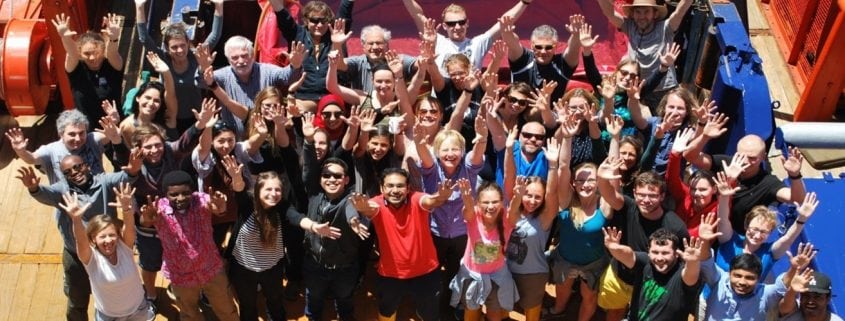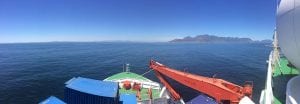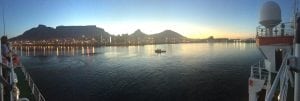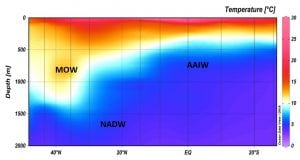
MaREI researcher on North South Atlantic Training Transect 2016
MaREI’s Abi Cronin was amongst twenty-five researchers chosen from a pool of five-hundred to take part in the North South Atlantic Training Transect (NoSoAT) 2016. Here she gives us a brief account of her experience…

On the 10th of December applicants from eighteen different countries travelled to Bremerhaven to participate in the opportunity to train in marine research on board a German research vessel. The overall goal of the program is to allow early career professionals to learn more about practical marine science and it’s link to climate change. The educational program focused on different topics including oceanography, remote sensing, ocean law, the ocean’s role in climate change, and scientific art. We were rocked to sleep every night for one month on board the RV Polarstern travelling from Bremerhaven to Capetown, with a brief stop off in Las Palmas.
The multidisciplinary approach allowed for a rich array of weather, climate, atmosphere and ocean research and measurements. This encouraged us to build a network of contacts from several different backgrounds. Various social nights were held to encourage this networking, including a BBQ as a reward for making it through the equator baptism, where we were put through our paces in the name of King Neptune.


Participants measured ocean temperature, salinity, oxygen, chlorophyll and pH using an XBT (Expendable Bathythermograph), CTD (Conductivity, Temperature and Depth), UCTD (Underway CTD) and various lab analyses including flow cytometry. This enabled us to gain skills in offshore data collection with instruments a lot of us previously had no experience using.

By mapping our measurements along the north-south transect of the Eastern Atlantic we could identify water masses by their characteristic temperatures and salinity. Below we can see three water masses identified along the transect, these include the Mediterranean Outflow Waters (MOW), the Antarctic Intermediate Waters (AAIW), and the North Atlantic Deep Waters (NADW).
This research is key to observing the ocean and atmosphere’s role in climate variations, it allows us to explain weather patterns and build more accurate predictive models. Ultimately, this research helps us to understand climate change.
I would like to thank all the sponsors of the NoSoAT Program for giving me this opportunity of a lifetime. I thoroughly enjoyed the experience, and it has fuelled my ambition to investigate the oceans through offshore measurements.
![]()
About the Author:
Abi is a Research Assistant in the Earth Observation Group of MaREI. She graduated from UCC with a MSc in Coastal and Marine Management in February 2016, and joined the MaREI team the same month. At the moment, Abi is working on the ESA funded CINMarS and EODAT projects, as well as the H2020 funded Co-ReSyF project. She is extremely interested in offshore measurements and data.
For more information on Abi, please see her UCC research profile


